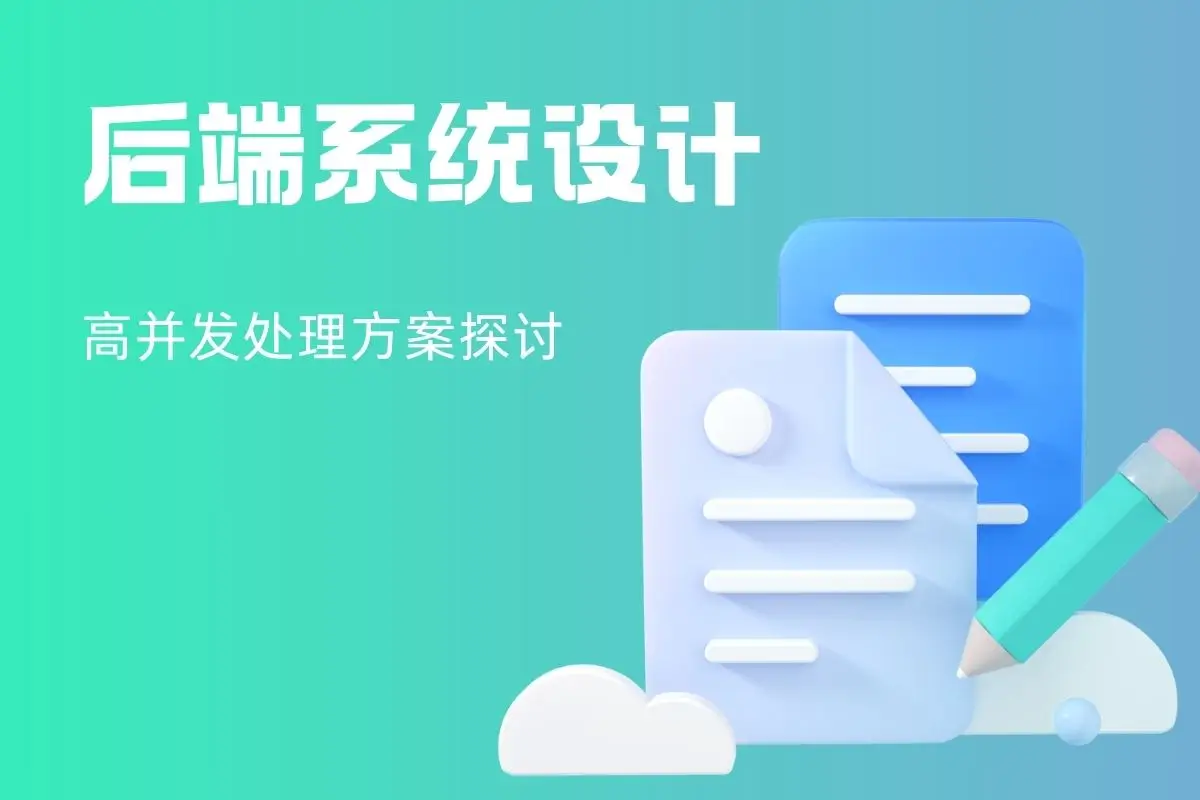设计一个订单超时取消功能时,需要考虑以下几个关键点:
1. 订单状态管理
- 订单状态:订单应有明确的状态,如“待支付”、“已支付”、“已取消”等。
- 超时状态:当订单超时未支付时,状态应变为“已取消”。
2. 超时时间设置
- 超时时间:根据业务需求,设置订单的超时时间(如30分钟)。
- 时间记录:在订单创建时记录创建时间,用于计算超时。
3. 超时检测机制
- 定时任务:使用定时任务(如Cron Job)定期检查未支付的订单。
- 延迟队列:使用消息队列(如RabbitMQ、Kafka)的延迟队列功能,订单创建时发送延迟消息,超时后触发取消操作。
4. 取消订单逻辑
- 取消操作:超时后,执行取消订单的逻辑,如释放库存、更新订单状态等。
- 通知用户:通过邮件、短信或站内信通知用户订单已取消。
5. 并发与一致性
- 并发处理:确保在高并发下订单不会被多次取消。
- 事务管理:取消操作应在一个事务中完成,保证数据一致性。
6. 监控与日志
- 监控:监控订单取消情况,及时发现异常。
- 日志记录:记录订单取消的详细信息,便于排查问题。
7. 扩展性与可配置性
- 扩展性:设计应支持未来业务变化,如不同商品有不同的超时时间。
- 可配置性:超时时间应可配置,便于调整。
示例实现
数据库设计
CREATE TABLE orders (
id INT PRIMARY KEY AUTO_INCREMENT,
user_id INT,
status ENUM('pending', 'paid', 'cancelled') DEFAULT 'pending',
created_at TIMESTAMP DEFAULT CURRENT_TIMESTAMP,
updated_at TIMESTAMP DEFAULT CURRENT_TIMESTAMP ON UPDATE CURRENT_TIMESTAMP
);定时任务(如 Spring 的 @Scheduled)
<pre class="wp-block-zibllblock-enlighter"><code class="gl" data-enlighter-language="generic" data-enlighter-theme="" data-enlighter-highlight="" data-enlighter-linenumbers="" data-enlighter-lineoffset="" data-enlighter-title="" data-enlighter-group="">import org.springframework.scheduling.annotation.Scheduled;
import org.springframework.stereotype.Component;
import org.springframework.transaction.annotation.Transactional;
import java.time.Instant;
import java.time.temporal.ChronoUnit;
import java.util.List;
@Component
public class OrderTimeoutChecker {
@Autowired
private OrderRepository orderRepository;
@Autowired
private NotificationService notificationService;
// 每 1 分钟检查一次超时订单
@Scheduled(fixedRate = 60000)
@Transactional
public void checkAndCancelTimeoutOrders() {
// 获取当前时间
Instant now = Instant.now();
// 计算超时时间点(假设超时时间为 30 分钟)
Instant timeoutThreshold = now.minus(30, ChronoUnit.MINUTES);
// 查询所有超时未支付的订单
List<Order> timeoutOrders = orderRepository.findByStatusAndCreatedAtBefore("pending", timeoutThreshold);
// 遍历并取消订单
for (Order order : timeoutOrders) {
cancelOrder(order);
}
}
private void cancelOrder(Order order) {
// 更新订单状态为 "cancelled"
order.setStatus("cancelled");
orderRepository.save(order);
// 释放库存(假设有库存服务)
inventoryService.releaseStock(order.getProductId());
// 通知用户
notificationService.notifyUser(order.getUserId(), "您的订单已超时取消");
}
}</code></pre>延迟队列(如 RabbitMQ 或 Redis)
import org.springframework.amqp.rabbit.core.RabbitTemplate;
import org.springframework.beans.factory.annotation.Autowired;
import org.springframework.stereotype.Service;
import java.time.Instant;
@Service
public class OrderService {
@Autowired
private OrderRepository orderRepository;
@Autowired
private RabbitTemplate rabbitTemplate;
// 创建订单
@Transactional
public void createOrder(Order order) {
// 保存订单到数据库
order.setStatus("pending");
order.setCreatedAt(Instant.now());
orderRepository.save(order);
// 发送延迟消息到队列(30 分钟后超时)
rabbitTemplate.convertAndSend("order-timeout-exchange", "order-timeout-routing-key", order.getId(), message -> {
message.getMessageProperties().setDelay(30 * 60 * 1000); // 30 分钟延迟
return message;
});
}
// 处理超时订单
@Transactional
public void handleOrderTimeout(Long orderId) {
Order order = orderRepository.findById(orderId).orElseThrow(() -> new RuntimeException("订单不存在"));
if ("pending".equals(order.getStatus())) {
cancelOrder(order);
}
}
private void cancelOrder(Order order) {
// 更新订单状态为 "cancelled"
order.setStatus("cancelled");
orderRepository.save(order);
// 释放库存
inventoryService.releaseStock(order.getProductId());
// 通知用户
notificationService.notifyUser(order.getUserId(), "您的订单已超时取消");
}
}总结
通过定时任务或延迟队列检测超时订单,结合事务管理和并发控制,确保订单取消功能的高效性和一致性。同时,监控和日志记录有助于及时发现和解决问题。
THE END



暂无评论内容